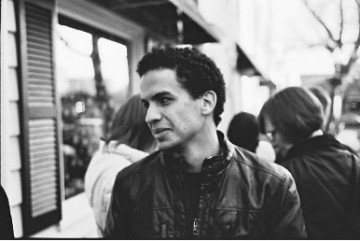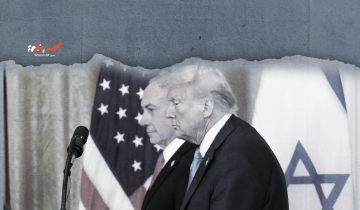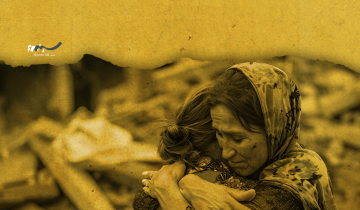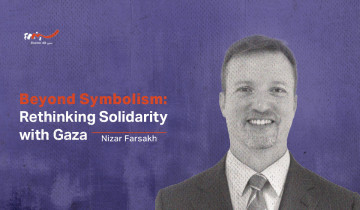Facing Our Future Amid Our Genocide: A Call for Radical Palestinian Unity

As we continue to feel powerless while bearing witness to the slaughter of our children in Gaza, we must reflect on how we arrived at this moment.
May 2025 marks 19 months of genocide and the start of the 77th year of our Nakba. Following nearly eight decades of exile, dispossession, massacres, apartheid, and military occupation, the magnitude of unchecked genocide, apocalyptic devastation, and starvation by force continues to be unbearable. Terms such as “charred,” “eviscerated,” “incinerated,” “headless,” and “emaciated” have entered our lexicon as a matter of course to depict our children. Our children. How did we get here?
Israel has benefited for 77 years from keeping us apart. The Zionist regime perfected a divide-and-conquer strategy—exiling 80% of us in 1948 and denying our return, while brutally severing those of us who remained. Neighbors, friends, siblings, even parents and children, were forcibly alienated, separated by walls, fences, roads, rainbow-colored identity cards, and military borders. We fought back from all locations of our displacement—Jerusalem, the West Bank, ’48, Gaza, the diaspora—and were hunted for it. Even our so-called leadership has worked against us, supporting our colonizer in fulfilling its agenda. This grim reality calls for us to confront ourselves as a people.
We have allowed the occupier to convince us that our cosmetic differences—ethnic, religious, economic, political, geographic—outweigh the fact of our colonization and fragmentation. Today, there are those among us who blame our resistance for the facilitation of our genocide. Today, despite millions of Palestinians in the diaspora, our liberation movement outside Palestine is not led by us but by those who support us. We must grapple with our role and purpose in the movement calling for a free Palestine.
Palestinian freedom is part of a wider struggle against fascism, corporate militarism, police violence, and systemic oppression around the world. As the torments of Gaza continue to unveil the failure of the liberal international order to defend the most basic of human rights and to uphold law, justice, and accountability, we know that Palestine is changing this world. But we need to consider: where are we in this struggle? Are we resigned to only living the effects of wicked global forces, or can we break beyond burnout, fragmentation, and manipulation?
We are facing an immense foe backed by major powers and regimes. But envisioning a future in which we are not being charred, eviscerated, starved, dispossessed, exiled, incarcerated, and maimed requires that we confront our violent fragmentation with radical unity. We must see ourselves as a single people beyond the labels assigned to us—Gazan, West Banker, Jerusalemite, 48er, or beyond. We must see our own children in the children of Gaza.
In the midst of our erasure as a people, we still lack an official record of the number of Palestinians outside of colonized Palestine. Millions of us remain uncounted through assimilation and any number of passports—a century-old exile that stretches from Chile to Kuwait and beyond. The simple act of coming together from across our expansive exile and from within our devastated homeland can clear the way to forging a shared future and collective leadership.
The hundred-year war on Palestine has now evolved into genocide. We can no longer stay mute and astonished at this new expression of the Nakba. It is time to reckon with our past, admit to our shortcomings, and unite in stopping the genocide of our children. It is the only way forward.

Nadim Bawalsa
A historian of modern Palestine and author of Transnational Palestine: Migration and the Right of Return Before 1948 (Stanford University Press, 2022), winner of the 2023 Palestine Book Award and the 2023 Nikki Keddie Book Award. He is associate editor of the Journal of Palestine Studies and serves on the editorial boards of the Jerusalem Quarterly and Al-Shabaka: The Palestinian Policy Network.



